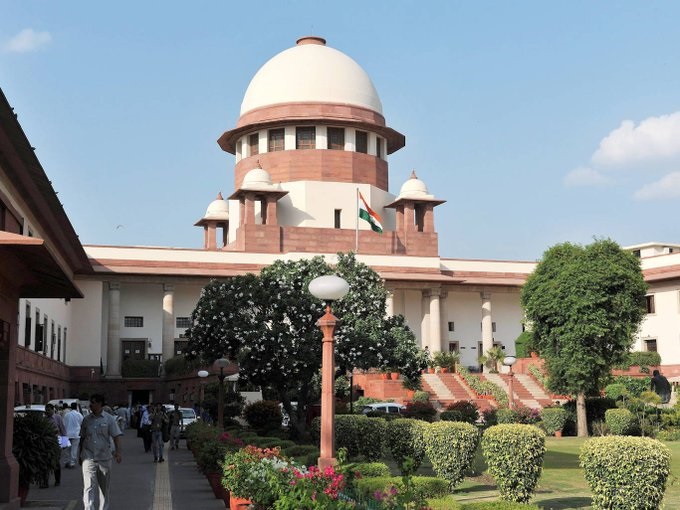In the loan moratorium case, the Supreme Court on Tuesday ordered a complete waiver of compound interest of all borrowers who availed the moratorium that ended on August 31, 2020. The court ruled that the amount already recovered from interest made on loans will be refunded by the lending party in the next installment of the loan.
The Bench of Justice Ashok Bhushan, Justice R Subhash Reddy and Justice MR Shah ruled, “We are of the opinion that there shall be no interest on interest or compound interest or penal interest during moratorium period and any amount already recovered under those heads shall be refunded by adjusting it in the next installment of the loan amount.”
The court also rejected some other pleas made by petitioners like extension of moratorium period, extension of period where the resolution mechanism can be invoked, further relief that are above and beyond the packages currently offered.
The court in its judgement also highlighted the fact that economic packages and relief packages fall within the scope of the executive and the Court does not have the same financial expertise to provide a judicial review on economic policies or fiscal matters.
The Supreme Court bench said, “The Court will not embark upon inquiry whether public policy is wise or better policy can be evolved. Economic and fiscal policies are not amenable to judicial review and merely because a sector is not satisfied with a policy decision, cannot be reason for interference unless there are malafides and arbitrariness in the said policy decision.”
The apex court’s ruling came after a bunch of pleas were filed by companies in real estate, infrastructure, power sector and more who sought extension of the loan moratorium period in the view of the ongoing COVID-19 pandemic.
The Supreme Court ruled that the compound interest of all the borrowers who took the respite of a moratorium, will be waived off completely, irrespective of the loan amount. According to Investment Information and Credit Rating Agency (ICRA), the waiver will now cost the government upward of Rs. 7,000-7,500 crores.
Also read: These are the 4 mid-sized state-run banks shortlisted by government for privatisation
The loan moratorium case so far
Back in 2020, the Reserve Bank of India had permitted Indian banks to grant a moratorium (temporary halt) on all the term loans due to the COVID-19’s economic impact. The moratorium was first set till May 31st, for a period of 3 months. Later the RBI revised the period and the moratorium was extended till August 31.
The case however took a life of its own when Agra-based eyeglass shop owner Gajendra Sharma approached the supreme court for the relief on the “interest-on-interest” accrued during the moratorium period.
The initial news of a moratorium gave a much-needed breathing room to businessmen and people who had personal loans. But after reading between the lines, people found out that they would need to pay an additional interest on the skipped loan payments during the moratorium phase.
In response to the concerns raised by borrowers like Gajendra Sharma, the RBI and Centre came up with a new scheme. In October 2020, the government told Supreme Court that it had made the decision to waive off the compound interest for loans that were only up to 2 crores. However, businesses that worked in sectors such as power, hotel, jewelry manufacturing and more approached the top court for further relief. These petitioners had obtained loans over Rs. 1,500 crores or lesser.
The Reserve Bank of India and the Centre stayed on the fact that the issues faced by big borrowers can seek remedies by K.V. Kamath Committee. The committee formed by the Centre and led by ICICI Chairman K.V. Kamath selected 26 sectors that will see their loans restructured. The 26 sectors included construction, iron and steel, roads, real estate, textile, aviation, logistics, mining and more.


























